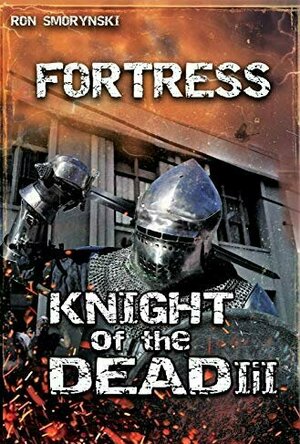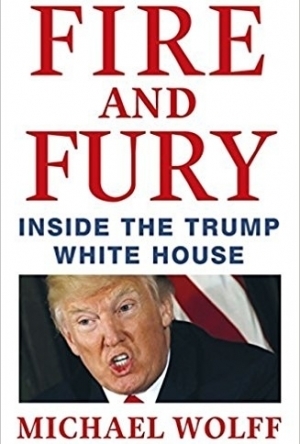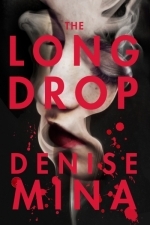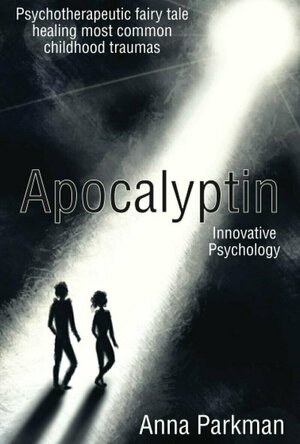
Apocalyptin
Book
First in the world psychotherapeutic metaphorical fairy tale for adults effectively working with the...
fiction psychology
Little Ray Of Sunshine (41 KP) rated Damage in Books
Jan 11, 2019 (Updated Feb 10, 2019)
HOW CAN YOU HEAL IF YOU CAN'T FACE YOU PAST?
Confident, Popular Gabi has a secret - A secret so terrible she can't tell her family, or her best friend,
she can't even take pleasure in her beloved skateboarding any more. One day, an impulse turns to something darker
Gabi has never felt so alone. But then she learns that not everyone has wounds you can see.
A searing look at self-harm and acceptance from hugely talented Author Eve Ainsworth.
Review
When reading this book I felt attached to the character Gabi as I know how it feels to lose your Grandad as mine passed away last year. It does make a gap in the family and feel weird.
It was sad that Gabi couldn't tell her parents how she felt and how it is making her feel as her parents always busy running their pub.
When Gabi starts to self-harm she felt so alone and this is the only way to release the sadness and pain. She felt she couldn't tell her best friend and her friends she skates about with as she felt they wouldn't want to be friends with her and she felt they would think she doing it just for attention.
I haven't read a book about self-harm before and I feel I want to read more about Mental Health through fiction and non-fiction books. I read this book during 'Mental Health Awareness Week' and I feel this needs to spread and let people at school to read it as I knew a few of my girl friends who self harmed when I was in Secondary School. I felt there was enough support in school when people who are getting bullied or needs someone professional to talk to and listen to them. I admit at the time my friends where doing this I was there to listen but I felt helpless and didn't know what advice to give them.
What is helpful from this book is the Author Eve Ainsworth has included organizations at the back of the book to help people. I will include them too below:
YOUNG MINDS: www.youngminds.org.uk
HARMLESS: www.harmless.org.uk
THE WISH CENTRE: www.thewishcentre.org.uk
RETHINK: www.rethink.org
MIND: www.mind.org.uk
Or if you need to talk to someone, the following organizations are there 24 hours a day.
CHILDLINE: www.childline.org.uk
Phone: 0800 1111
THE SAMARITANS
www.samaritans.org
Phone: 116 123
If you have anymore organizations you know and would like to include please comment below.
Thanks for reading x

Little Fox Animated Stories & Songs for Kids
Education and Book
App
Download the Little Fox app, and enjoy 300 animated stories and songs that are available for FREE....
EmersonRose (320 KP) rated Knight of The Dead III: Fortress in Books
Nov 20, 2019
Without a doubt, my favorite part if this series is the unique take at apocalypse fiction by throwing in medieval fighting. This book does not disappoint as there are thrilling action scenes, plenty of training sequences, and the knight continuing to become a legend in the modern world. This unique touch simultaneously gives the story a fun and engaging layer while also somehow adding to the believability of the world that author Ron Smorynski has created. With the detailed fighting knowledge, and the time spent on gathering food, training, getting water, and fortifying the school, as a reader you can believe that they would have survived this long.518hheXuwoL._SY346_
This book focuses more on rescue then the previous books and as the cast of characters continues to grow there is less time spent one on one with people. This decreases the amount of individual tension between characters, but there is still tension as Ronan is the dictator and continues to push his Christian values on everyone within his fortress. This dynamic makes sense in the situation, but I like the moments when Ronan gets to be humanized more in small moments. A hug with his wife or children, a cute moment with him and the children, his appreciated a moment of laughter. These moments are very sweet in the otherwise horror-filled world they live in, and Ronan gets to relax the least as a leader.
Pet peeve of mine in apocalypse fiction is the idea that you are completely alone in the world. That although you survived no one else on the planet could have. Smorynski does not fall into this trap. He acknowledges the bigger world, although his characters have very little contact with it. And there is a good balance between the characters feeling alone and being alone. Many people have died in the month of the apocalypse, but they are still finding survivors. There are other people who are holding on. This makes the series more exciting for me and also keeps me excited for the books to come as I enjoy watching the growing community of survivors.
This series is exciting and gripping from beginning to end. Smorynski does a good job of justifying the risks that his characters take and ups the stakes and consequences as the book progresses, making the danger feel read from beginning to end. If you like zombie stories or apocalypse fiction, then I would highly recommend checking this series out. I cannot wait to see where the story goes from here!
Suswatibasu (1703 KP) rated Fire and Fury: Inside the Trump White House in Books
Jan 10, 2018
Wolff seeks to fill in the gaps between the various tweets and public appearances made by the U.S. president during the last 13 months, the rash decisions and the thinking behind the bizarre rants. But more than anything, this book seems to explain the Trump brand, and everyone who has become a prime role in marketing it, especially Trump's ex-right hand man Steve Bannon and his family Ivanka and husband Jared Kushner. Their position is explained to be the 'puppet masters', in which unlike any other U.S. government - policies are dictated and "trickled upwards".
In this, Trump is described as 'post-literate', unable to read or concentrate on anything that doesn't interest him, petulant like a child, and disturbingly vacuous. This is less shocking than expected. However, the claims made in the book range from covert connections with the Russians ahead of the elections in great detail, to 'allowing' former head of the FBI, James Comey, to stay in power so that would did not investigate internal affairs - allegedly confirmed by Bannon.
Other less explosive statements include Trump's inner circle reportedly saying how ridiculously stupid he is, which he has recently refuted by saying he is a "stable genius". Overall, an incredibly readable book mostly corroborating what liberals and non-Trump supporters believe.
Zuky the BookBum (15 KP) rated The Long Drop in Books
Mar 15, 2018
This book tells the story of Peter Manuel, real life Scottish serial killer. Like with so many other books on the market nowadays, this is a non-fic-fiction novel. It's based its contents on real events but the author has weaved a story around it too.
What's so striking about this novel is Mina's ability to tell a story. The story flowed brilliantly and it never lost my interest, even when we started getting into some of the more in-depth and historic facts about Glasgow. The writing style is short and snappy, so you really feel yourself racing through this.
Characters. Oh wow, the characters. Somehow, you feel simultaneously angry and empathetic for everyone in this book, even Peter Manuel, the serial killer. Mina's character development is superb and you find yourself getting drawn into each person's story so quickly. We follow Peter Manuel and William Watt throughout most of this novel, but there are small scenes popped in that introduce characters we only meet once throughout the entire book, yet I still felt like I knew them and I still invested myself in their stories, no matter how short.
Overall, this book was really superb and if you're looking for something dark, but quick to read, this is the book for you. At only 240 pages, you'll find yourself racing through this! I can't wait to read more of Mina's work, if it's all as good as this one.
I think this was one of the very first books that I requested on Netgalley and I can’t even remember why I requested it, it’s not really something that I would go for. However I requested and finally read it and now reviewing :). This is a science-fiction/dystopian Young adult book, it is hard to categorise as it felt like several genres. We follow this boy and he is known as Boy 23 and lives in ‘My Place’ he doesn’t have any human contact and has no idea of the outside world, he communicates with ‘The voice’ who tells him his schedule and is a role model of such.One night Boy 23 is bundled in to the boot of a car and dumped into the woods with a backpack and ‘the voice’ telling him to run as far away as possible. With never being outside before he doesn’t know foe from friend. Someone is out to get him but he needs to let the right people know that he exists before he is captured. This book was OK! It was fast paced with an air of mystery, however it took a long time for the big reveal and I was getting a little bored to be honest. The writing was not the greatest and the use of ‘Squizz’ and ‘yomping’ was way too much and started irritating the hell out of me. The world building was pretty non-existent, we knew that it was set in Germany but we didn’t get much more than that.
I rated this 2.75/5 stars.
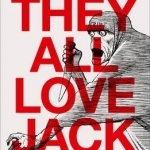
They All Love Jack: Busting the Ripper
Book
LONGLISTED FOR THE SAMUEL JOHNSON PRIZE FOR NON-FICTION A book like no other - the tale of a...
Poetic & Real Worlds of Cesar Vallejo (18921938): A Struggle Between Art & Politics
Book
The world-renowned Peruvian poet Cesar Vallejo (18921938) was also a journalist, essayist, novelist...
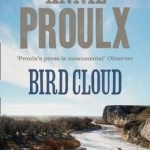
Bird Cloud: A Memoir of Place
Book
Annie Proulx, one of America's finest writers, invites us to share her experience in the building of...

